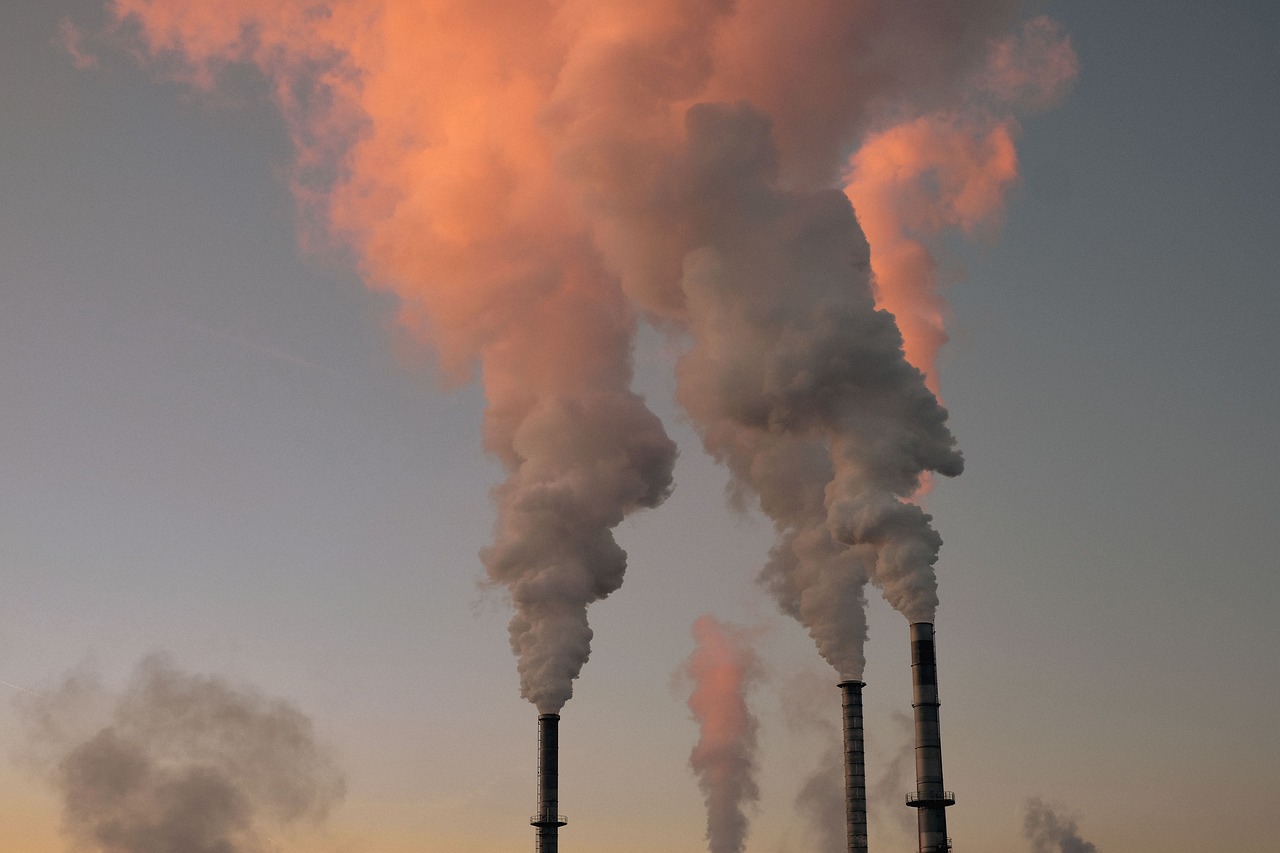Apply now to join our next cohort of Community Science Fellows and Community Leads!

Image by Karl Egger from Pixabay
In Clairton, Pennsylvania, the term “environmental racism” is more than just a concept – it is a reality. Clairton is an environmental justice area in Allegheny County – ranked in the top 2% of counties nationwide for cancer risk from point-source air pollution. The city houses the largest coke plant in the nation and the top polluter of Allegheny County, the Clairton Coke Works (CCW). Nearly 40% of Clairton residents are Black and concentrated near the U.S. Steel Clairton Coke Works plant.
U.S. Steel relies on the CCW to carbonize coal to manufacture coke, a porous coal-based fuel used in iron ore smelting to produce steel. In their broad plan for a green steel transition, U.S. Steel expects to phase out coke plants and integrate more electric arc furnaces. Still, there is a lack of information on how this transition will play out in Clairton and how it will affect the physical and economic well-being of Clairton residents.
The Black Appalachian Coalition (BLAC) wants to understand the health, environmental, and economic impacts of coke production in Clairton and what U.S. Steel’s proposed transition to green steelmaking means to Black residents in Clairton. This project aims to corroborate community members’ lived experiences with data and empower community advocacy with scientific expertise. In a broader context, this project extends BLAC’s mission to spotlight historically overlooked Black Appalachians. BLAC hopes to set a precedent for other Black communities in the Ohio River Valley that the coke and petrochemical industry has exploited.
Clairton, Pennsylvania, is nestled within the Ohio River Valley in central Appalachia and is home to about 6250 residents, of which 2500 are Black community members. It also houses the Clairton Coke Works, the largest coke plant in the country owned by U.S. Steel and the number one toxic air polluter in Allegheny County. People of Clairton breathe air consistently ranked among the worst quality across the United States and bear physical, mental, and community health consequences. Many of the Black residents are disproportionately affected by pollution and related illnesses, including asthma and cancer.
Historically, coke oven workers at the plant had a higher mortality rate compared with other steelworkers, and Black workers, taking the most dangerous top oven work, experienced a much higher risk of dying from lung cancer than their peers with European ancestries. Since the OSHA standards for coke oven emissions took effect in the 1970s, work conditions, and the city’s air quality have improved. However, Clairton Coke Works have had multiple serious OSHA violations over the years, three fires at their coke plants since 2018, and the city’s air quality remains a concern for residents. Clearly, there is still work to be done.
Through collaboration with Thriving Earth Exchange, the Black Appalachian Coalition hopes to gather data on how the coke plants have affected the life quality of Black residents in Clairton, PA. In addition to this project, the organization is launching a “Freedom to Breathe” campaign, hosting a petrochemical lunch and learn series, and building a story map for Black Appalachians to share their lived experiences. This is among their efforts to challenge the colonized narrative of Appalachia and amplify Black voices.
The Black Appalachian Coalition (BLAC) would like to assess how U.S. Steel’s coke productions have impacted the physical, mental, and economic well-being of Black residents in Clairton, PA. While data exists on air pollution and gender and racial inequality in the general Pittsburgh area and Allegheny County, insufficient studies have been done on the city of Clairton. In addition, there is a lack of research on U.S. Steel’s proposed transition to green steelmaking and what it means for residents of Clairton.
Through this project, BLAC hopes to publish a black paper that models the intensity of different pollutants emitted from the CCW at the neighborhood level and assesses the economic impact of coke production. Our technical experts, Xinyue Huang, and Jancy Liu, will use case studies of a city that has transitioned to green steelmaking and a city in the Pittsburgh area that has recently closed their coke plant to quantify the effects of a proposed green steel transition.
The Allegheny County Health Department has fined U.S. Steel millions of dollars for its pollution violations. Still, little has been used to improve Clairton residents’ quality of life directly. Through this project and its “Freedom to Breathe” campaign, BLAC hopes to demand more funding for local agencies and health departments to address disproportionate exposure to air pollution and reduce air pollution in Clairton, PA. BLAC also hopes to build a digital toolkit to share the lessons learned in the Clairton project with other Black communities in Appalachia that the coke and petrochemical industry has exploited.
April 2024, before the primary election in PA: first draft of the black paper ready.
Other project milestones (e.g. a webinar on the findings after the release of the black paper, digital toolkit) are to be determined by the state of the black paper
Bishop Marcia Dinkins
Bishop Marcia Dinkins, executive director of Black Women Rising, launched the Black Appalachian Coalition (BLAC) on June 18, 2021, as an initiative to ensure accurate and inclusive accounts are being told. In addition to her roles at Black Women Rising and BLAC, Bishop Dinkins serves as the part-time executive director for Ohioans for Sustainable Change (formerly Ohio Interfaith Power and Light). Bishop Dinkins brings a wealth of knowledge to this work, with a background in community organizing related to domestic violence, health and safety, education, climate, environment, employment and criminal justice. She holds a Bachelor of Arts in Interdisciplinary and Women and Gender Studies (University of Toledo) and a Master of Arts in Criminal Justice and Policy (Youngstown State University). Currently, Bishop Dinkins is a Ph.D. candidate at Union Institute and University focusing on Public Policy and Social Change.

Melanie Meade
Melanie Meade is a mother of two boys, grandmother of 3, Natural Health coach, Reiki professional, and environmental justice activist. She is a lifelong resident of the Mon Valley region in the city of Clairton. She has been advocating for justice and accountability against the Clairton Coke Works Plant, the largest coke plant in the U.S. Melanie is a graduate of the University of Pittsburgh and Trinity School of Natural Health, promoting light life practices through wellness and synchronicity of mind, body, and soul. In 2022, she completed the Climate Reality Leadership Corps Power-Up Climate Change Training. Currently, she is a Black Appalachian Coalition Narrative Organizer and a member of the Environmental Justice Genius Advisory Group of New Sun Rising. She enjoys dancing to all types of live music, writing poetry, practicing reiki, learning yoga, playing with her grandchildren, and taking long walks on the beach.

Kidest Gebre
Kidest grew up in a small city in Ethiopia and moved to D.C. thirteen years ago. She has been in the environmental justice movement for six years at the intersection of organizing and communications. She believes creative storytelling is an effective tool for grassroots organizing, digital organizing, and advocacy. Kidest is based in Virginia and has worked with local groups like Virginia Interfaith Power & Light, Green New Deal VA, Virginia Environmental Justice Collaborative, and Virginia Conservation Network. Kidest believes Black people and other marginalized communities should be at the center of environmental policies and decision-making. She is excited to join BLAC to uplift the voices of Black folx and cultural heritage that have always existed in the Appalachian region. When she is not organizing, she likes to cook, dance, garden, and make art. To connect with Kidest, email [email protected]

Jancy Ling Liu
Jancy Ling Liu is an empirical microeconomist and Ph.D. candidate at Georgia Tech, specializing in environmental and energy economics. Her work focuses on the socio-economic effects of climate change and energy transitions. Employing both experimental and econometric methods, her research investigates how major environmental shifts influence social dynamics, including migration patterns, consumer behaviors, local community impacts, and environmental justice. As a passionate advocate for diversity and inclusion, Jancy actively contributes to DEI initiatives and aims to inform climate policy with her interdisciplinary and policy-relevant findings.

Xinyue Huang
Xinyue Huang is a graduate researcher in the Environmental & Water Resources Department at Virginia Tech. She gained familiarity with the fates of pollutants in environmental media through her educational background, emphasizing atmospheric processes and air pollution. Over the past four years, she has used various atmospheric modeling tools and spatio-temporal datasets to investigate the extent and trends of air pollution. In this project, she aims to integrate available observations with local-scale modeling to quantify the exposure to pollutants in water and air as well as the associated health impacts affecting community members related to the Clairton Coke Works. She is also excited about exploring opportunities for the coke plants to transit to green steelmaking.

Yezi Yang
Yezi Yang (she/her) is an invertebrate paleontologist and geochemist at Virginia Tech. She uses stable isotopes and other geochemical proxies to understand environmental changes in Earth’s history and how they are linked to the extinction of life. Other than studying (really) dead animals, Yezi is passionate about environmental and climate policy, science communication and gender-based violence prevention and education.
(c) 2024 Thriving Earth Exchange